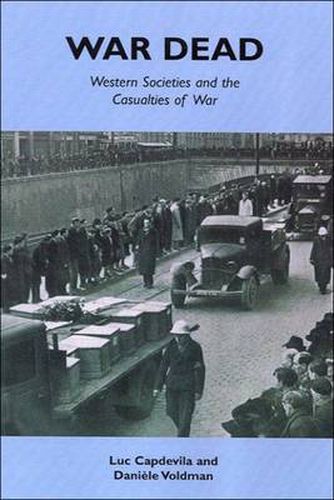Readings Newsletter
Become a Readings Member to make your shopping experience even easier.
Sign in or sign up for free!
You’re not far away from qualifying for FREE standard shipping within Australia
You’ve qualified for FREE standard shipping within Australia
The cart is loading…






Wars in the industrial age kill large numbers of people. What do societies involved in these conflicts do with all the corpses? How do they show them respect? How do they dispose of them? What is their attitude to the bodies of the enemies? In the 19th century, those who died on the battlefield were pushed into mass graves, their identities unknown. Today, their remains are held in such high esteem that they are tracked down in order that last respects might be paid. As a historical account of the way in which war and death intersect, this book describes the complex attitude societies have towards death. Lured by the concept of eternal youth, tempted to deny death as well as physical decay, faced with longer life expectancy, we retain the hope of going off to war without loss of life. But does not our own expectation of zero death imply more deaths for the other side?
$9.00 standard shipping within Australia
FREE standard shipping within Australia for orders over $100.00
Express & International shipping calculated at checkout
Wars in the industrial age kill large numbers of people. What do societies involved in these conflicts do with all the corpses? How do they show them respect? How do they dispose of them? What is their attitude to the bodies of the enemies? In the 19th century, those who died on the battlefield were pushed into mass graves, their identities unknown. Today, their remains are held in such high esteem that they are tracked down in order that last respects might be paid. As a historical account of the way in which war and death intersect, this book describes the complex attitude societies have towards death. Lured by the concept of eternal youth, tempted to deny death as well as physical decay, faced with longer life expectancy, we retain the hope of going off to war without loss of life. But does not our own expectation of zero death imply more deaths for the other side?